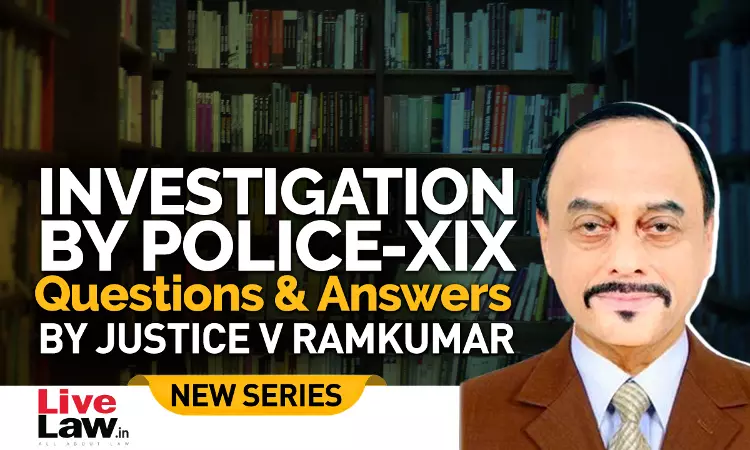Questions & Answers By Justice V. Ramkumar- Investigation By Police- PART XIX
Justice V. Ramkumar
5 Jan 2023 11:26 AM IST

Next Story
5 Jan 2023 11:26 AM IST
Q.91 Is it not permissible to use the “inquest report” to contradict the prosecution witnesses to whom a dying declaration was made by the deceased ?Ans. No. Statement made by the Investigating Officer in the inquest report on the basis of what he heard from others would be hit by Section 162 Cr.P.C. (Vide para 30 of George v. State of Kerala (1998) 4 SCC 605 = AIR 1998 SC 1376 – M....
